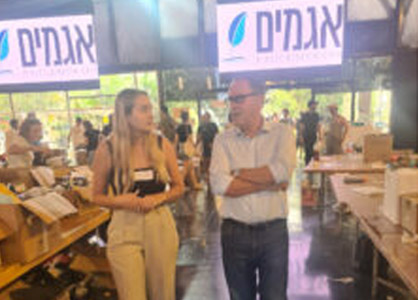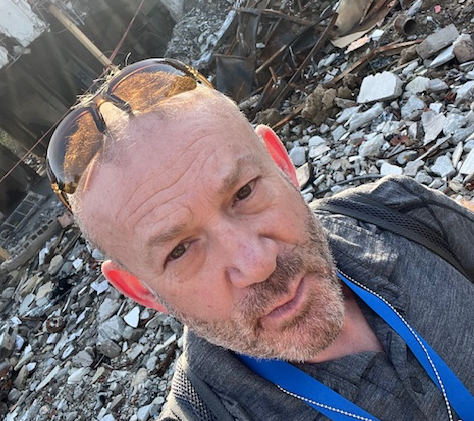
Life Expectancy Higher in Israel than in the United States
Life Expectancy Higher in Israel than in the United States
October 13, 2010
BEER-SHEVA, ISRAEL, October 12, 2010 — A new study conducted by a researcher at Ben-Gurion University of the Negev (BGU) for Jerusalem’s Taub Center for Social Policy Studies in Israel reports that Israelis have a higher life expectancy on average than Americans and residents of other OECD (Organization for Economic Cooperation and Development) countries.
According to the most recent data, from 2005, the average American life expectancy is now 78 years; for Israeli Jews, approximately 81 years and Israeli Arabs, 79 years. Japan has the highest life expectancy of OECD countries averaging 82 years.
Professor Dov Chernichovsky, a BGU lecturer and a health economist for the Taub Center, also revealed that while Israeli Arabs still lag behind Israelis – due in part to cultural, social and educational issues – they still live noticeably longer on average than Americans.
The UN Human Development Index uses life expectancy at birth as the accepted overall measure of national health and the public health indicator. In 1980, the life expectancy for Israeli Jews, Americans and residents of the other developed countries was almost identical, at approximately 74 years; but Israeli Arabs were two years less, or 72.
“Since then, the increase in Israeli life expectancy has far outpaced those of other countries,” Chernichovsky explains. “Life expectancy in the U.S. grew by four years since 1980, and in the rest of the OECD it grew by six years. But for Israelis, both Jews and Arabs, the gain was more than seven years.”
According to Chernichovsky, “The national health system and other medical improvements have been notably successful in improving outcomes for all Israeli residents – both in absolute and relative terms compared to other developed countries and in narrowing the gaps within Israel.” He has conducted a number of studies examining the U.S. healthcare delivery system in comparison with other countries.
Another widely used indicator is infant mortality, which aggregates information about health outcomes over the entire life cycle and focuses on the survival of infants during the first year of life. In 1960, infant mortality rates were nearly identical for Israeli Jews, Americans and residents of the other OECD countries, while the Israeli Arab rate was approximately double.
Since that time, all countries have shown substantial declines in infant mortality, from more than 25 per 1,000 live births to fewer than 10. Yet, the decline in Israel is greater than that for the U.S. and slightly exceeds that of the rest of the OECD.
“Arab Israelis have experienced the most significant decrease in infant mortality from over 50 to less than 10 per 1,000 live births, which can be directly attributed to Israel’s preventative healthcare services, particularly those dealing with OB/GYN and pediatric services,” Cherichovsky explains.
About the Taub Center for Social Policy Studies in Israel
The Taub Center for Social Policy Studies in Israel, headed by Prof. Dan Ben-David, is an independent, non-partisan, socio-economic research institute based in Jerusalem. The Center provides decision makers and the public at large with a big-picture perspective in the areas of the economy and society. The interdisciplinary policy programs include outstanding researchers from academia and leading experts from policy fields who, along with the Center’s professional staff, conduct research and make policy recommendations on key socio-economic policy issues facing the country.
ABOUT AMERICANS FOR BEN-GURION UNIVERSITY
By supporting a world-class academic institution that not only nurtures the Negev, but also shares its expertise locally and globally, Americans for Ben-Gurion University engages a community of Americans who are committed to improving the world. David Ben-Gurion envisioned that Israel’s future would be forged in the Negev. The cutting-edge research carried out at Ben-Gurion University drives that vision by sustaining a desert Silicon Valley, with the “Stanford of the Negev” at its center. The Americans for Ben-Gurion University movement supports a 21st century unifying vision for Israel by rallying around BGU’s remarkable work and role as an apolitical beacon of light in the Negev desert.
About Ben-Gurion University of the Negev
Ben-Gurion University of the Negev embraces the endless potential we have as individuals and as a commonality to adapt and to thrive in changing environments. Inspired by our location in the desert, we aim to discover, to create, and to develop solutions to dynamic challenges, to pose questions that have yet to be asked, and to push beyond the boundaries of the commonly accepted and possible.
We are proud to be a central force for inclusion, diversity and innovation in Israel, and we strive to extend the Negev’s potential and our entrepreneurial spirit throughout the world. For example, the multi-disciplinary School for Sustainability and Climate Change at BGU leverages over 50 years of expertise on living and thriving in the desert into scalable solutions for people everywhere.
BGU at a glance:
20,000 students | 800 senior faculty | 3 campuses | 6 faculties: humanities & social sciences, health sciences, engineering sciences, natural sciences, business & management, and desert research.
For all press inquiries, please contact:
James Fattal, J Cubed Communications
516.289.1496



